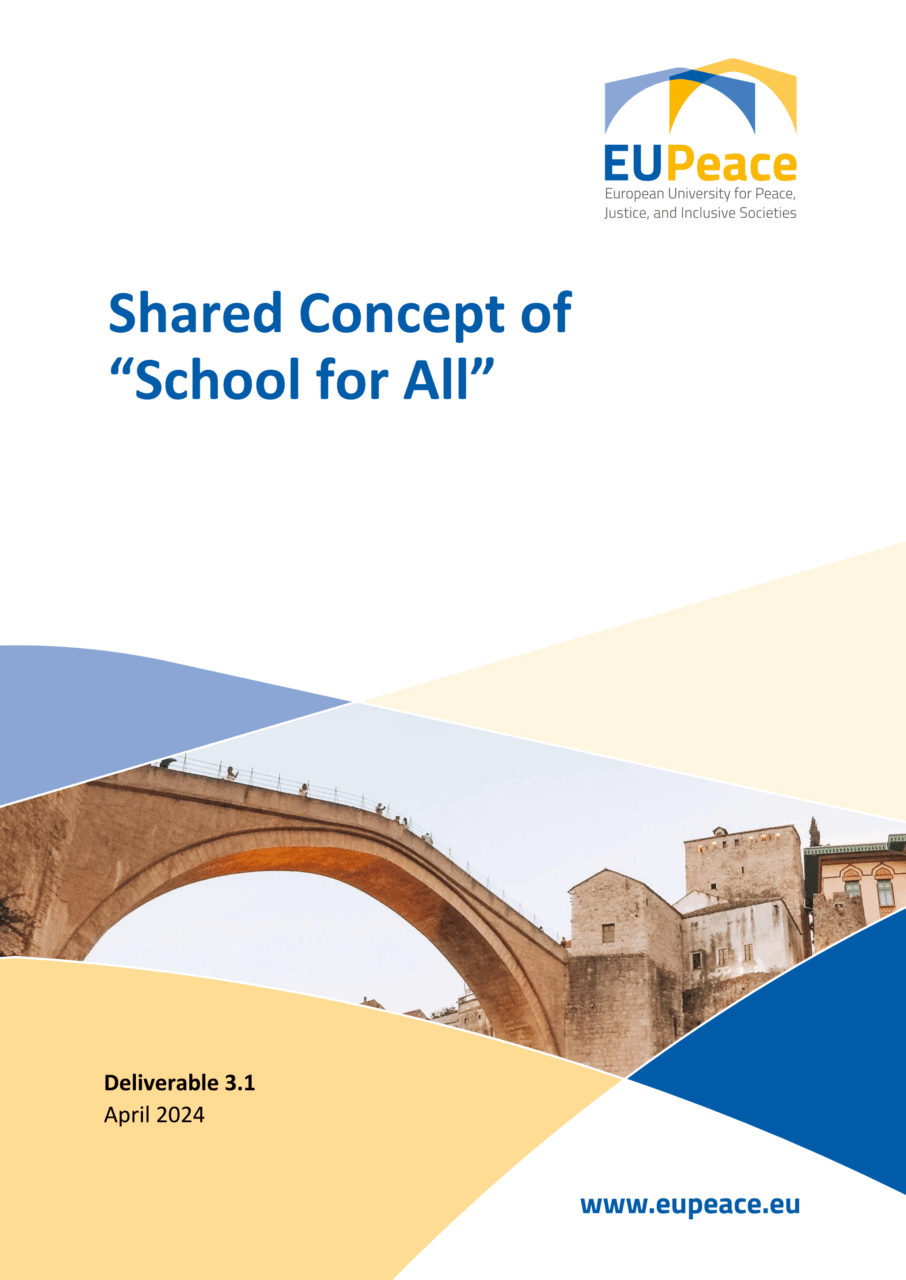As part of our endavours to support the internationalisation of teacher education, the team behind the work packages as been working on a Shared Concept of “School for All”.
Towards an EUPeace Concept of “School for All”
In an era where societal fractures are becoming increasingly evident, the urgency to cultivate environments that foster peace, justice, and inclusivity cannot be overstated. The EUPeace consortium, comprising nine European universities, embarks on this mission with the “School for All” initiative, a pioneering effort aimed at integrating these core values into the educational fabric of our societies. This document outlines the consortium’s vision, approach, and strategic objectives for realising an educational paradigm where every student, regardless of background or ability, can thrive.
The initiative arises from a critical need to address the growing diversity in classrooms across Europe and the challenge of ensuring equitable educational opportunities for all. Despite the legal frameworks and international agreements advocating for inclusive education, practical implementation faces hurdles ranging from inadequate teacher preparation to entrenched societal biases and infrastructural limitations. “School for All” seeks to confront these challenges head-on, proposing a multifaceted strategy that encompasses curriculum development, teacher training, and policy advocacy.
Central to the project’s objectives is the enhancement of teacher competencies in inclusive pedagogy. Recognising that teachers are the linchpins of educational transformation, the consortium prioritises the internationalisation of teacher education. This involves not only embedding global and intercultural perspectives into teacher training curricula but also promoting mobility and exchange among educators to foster a broader understanding and appreciation of diversity.
The value of the “School for All” concept extends beyond the immediate goal of educational inclusion. It embodies a holistic approach to societal well-being, acknowledging that schools are microcosms of the larger social fabric. By cultivating environments that respect and celebrate diversity, we lay the groundwork for more peaceful, just, and inclusive societies. The initiative’s emphasis on digital courses, internships abroad, and collaborative research further enriches the learning experience, equipping future educators with the tools to navigate and shape a complex, interconnected world.
Moreover, the consortium’s approach to inclusive education is grounded in innovative practices and concepts such as universal design for learning (UDL), design thinking, whole institutional approach and blended mobility. These methodologies not only accommodate diverse learning needs but also ensure that inclusion is woven into the very DNA of educational systems. The strategic partnerships with local communities and international bodies underscore the project’s commitment to a collective effort in dismantling barriers to education.
As you are about to discover throughout this document, the “School for All” initiative represents a significant step forward in the quest for educational systems that serve everyone equitably. Its comprehensive framework, spanning curriculum development, teacher training, and policy advocacy, offers a blueprint for educational reform that is both inclusive and transformative. By championing the principles of peace, justice, and inclusivity, the EUPeace consortium not only addresses the immediate challenges facing our schools but also contributes to the broader vision of a more harmonious, equitable world.
Contact



